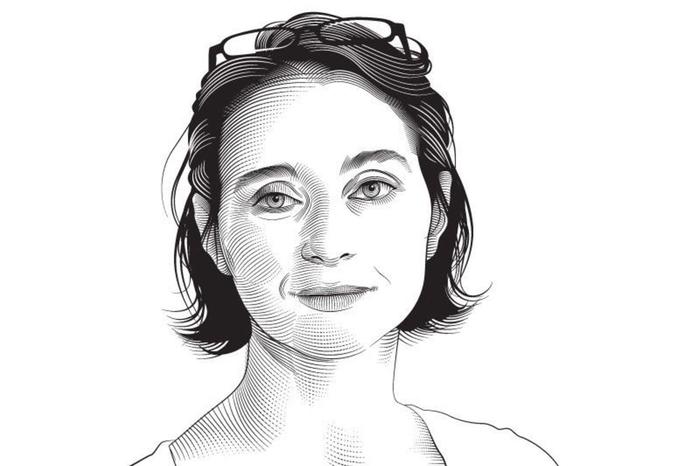René de Obaldia was, literally, a man of the world: he was born in Hong Kong to a Panamanian father and a Picardy mother. He composed sparkling pieces that enchant us. I have rarely laughed as much as at the tirades of Monsieur Klebs launched by Michel Bouquet, at the acidulous insolence of Satyre de la Villette, at the crazy repartees Of the wind in the branches of sassafras. I read all his plays with the pleasure of rediscovering in them the bittersweet flavors and the black and pink tones dear to Jean Giraudoux, Jean Anouilh and Marcel Aymé – the forefront of magic realism, from which he had taken over the torch.
Spirit
As for them, his theatrical art was an art of words soaked in a bath of spirit. A prestidigitation of verb and poetic comicalities that we found in his novels. I owe one of my last enchantments for reading to his Exobiography, and for theater to his Grasse matinee – a story of joyful deaths, full of twists and turns.
→ PORTRAIT. Death of René de Obaldia, eternal "stunned"

I remember my emotion when I met him. I feared that the man would tarnish the image of the writer. It is sometimes difficult to tame the reality of a character that we met in his books. From the outset, I was charmed, conquered. He hadn't written for a few years. However, he continued to compose. His memories, characters. At home, he did his theater. He quoted the phrase of Jean Cocteau: “Without the devil, God would never have reached the general public. He used to pastiche his interpreters. He excelled at imitating Michel Simon (“He told me he would give anything to interpret Du vent dans les branches de sassafras; he took me a lot when he accepted.”)
Prisoner
Sometimes, perhaps more and more often, he also evoked the painful years of his detention in Silesia, then a prisoner during the Second World War ("What do you want, the Germans loved me so much that they kept me for four years.”) I have often wondered if the extreme lightness of his spirit, his iconoclastic essence, did not proceed from despair, from this “overabundance of gravity” whose he defined humor. In this stalag, where he "forgot to have and learned to be, only to be", he had received an example: that of an inmate he would never forget - "This man read the lines of the hand to the breathless prisoners, and presided over an exquisite future and marvelous surprises. »
→ REREAD. René de Obaldia, the grace of the moment.
We always emerged lighter from these encounters, reinflated with helium, enchanted by his spirit, his alert tone. “You know what they say: at school, I was a dunce. Yes, it is really fashionable to say that we were a dunce. Well, me, forgive me, but I was not a dunce, I was just useless! We were carried away by his sparkling memory, amazed to have listened to the clear and precise voice of a man who had known, before the war, Lou-Andreas Salomé, Nietzsche's muse; of a writer who was a friend of Jean Paulhan and Eugène Ionesco, and who, even before the war, took part in the banquet of young admirers of the poet Saint-Pol-Roux, the goldsmith of symbolism.
When I got home, I prolonged the pleasure of the interview by diving into the freshness of his Innocentines, poems for children and a few adults. I noticed lively and hilarious departures. And I was still smiling at what he had just told me, at his amused stupefaction when he had heard Michel Simon who "lost his memory and, when he wasn't skipping entire lines, gave some that weren't in my piece" to announce, on the evening of the premiere, at the fall of the curtain and in front of a delirious audience: "The piece that I had the honor of performing in front of you for the first time... the piece... the honor... Shit, I forgot the author's name. »
“I have decided to live forever. So far, everything is going as planned! René de Obaldia could have signed this quote from Alphonse Allais. For his 100th birthday, he had found his formula: "I lived until today, I see no reason why it shouldn't continue. »
A death by distraction.
At the age of 103, it seemed as if death had forgotten him. We then remembered that he had announced his intentions very early on. Still green, although not yet an academician, he had signed one of his novels Le Centenaire. Then he reiterated his snub to the Camarde by titling one of his plays Le Défunt. Finally, in Genousia, he imagined the many ways in which he would leave this earth. By the spleen? Through the stomach? By a whim of the thrilling? The funny list mentioned had not considered a death by distraction. Yet it was by forgetting to wake up from his nap, in his armchair brightened up with a brightly colored shawl, that he walked away, no doubt delighted by the image of the paradise he once had. the interview. That of a green meadow dotted with daisies and buttercups.








